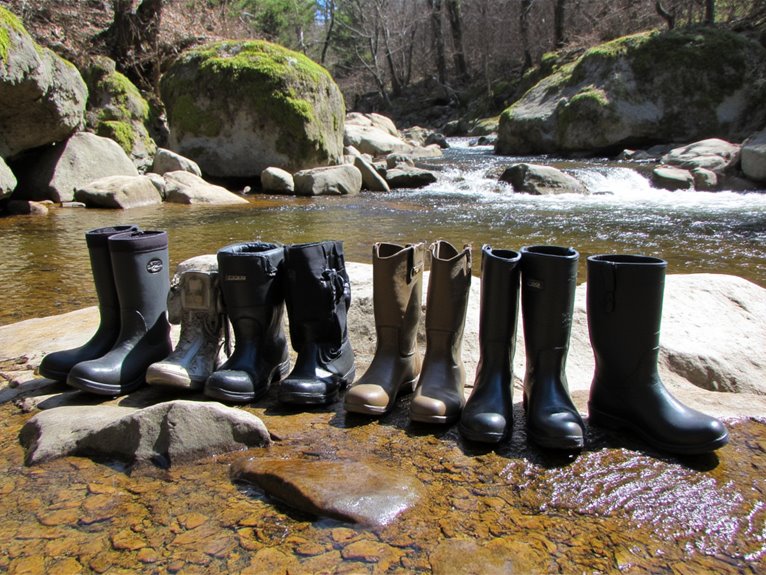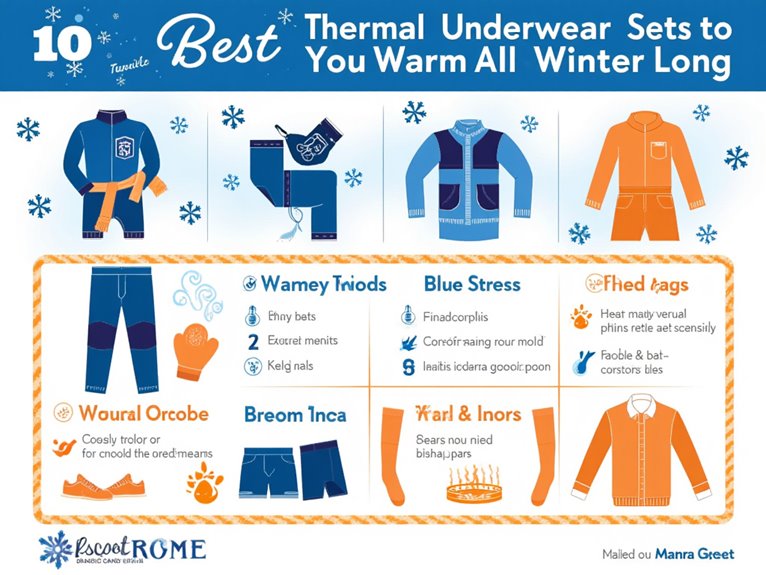Can an Rv Last 30 Years?
A well-maintained and properly constructed RV can indeed last for 30 years or more, with some owners successfully logging hundreds of thousands of miles without major issues. Key factors contributing to a long lifespan include a solid foundation, regular maintenance, and proper storage conditions. Regular inspections and timely repairs also play a vital role in preventing minor issues from becoming major problems. By adopting responsible operating habits and staying proactive, RV owners can enjoy a safe, enjoyable, and worry-free travel experience for decades to come. As you venture into the world of RVs, you'll discover the secrets to accessing a lifetime of adventure.
We are supported by our audience. When you purchase through links on our site, we may earn an affiliate commission, at no extra cost for you. Learn more. Last update on 21st January 2026 / Images from Amazon Product Advertising API.
Quality of Initial Construction Matters
In the realm of RVs, the quality of initial construction can make all the difference, as a sturdy foundation laid during the manufacturing process can substantially impact the vehicle's overall performance and lifespan.
A well-built RV can withstand the rigors of the road, while a poorly constructed one may show signs of wear and tear prematurely.
The initial construction phase sets the tone for the RV's future, influencing its reliability, durability, and overall value.
A reputable manufacturer will prioritize quality materials, craftsmanship, and attention to detail, resulting in a solid foundation that can support years of adventure.
In terms of RV quality, a well-constructed vehicle is essential, as it lays the groundwork for a lifetime of worry-free travel and exploration.
Maintenance Habits Make a Difference
Proper upkeep, a vital aspect of RV ownership, serves as the backbone of a trouble-free travel experience, as diligent maintenance habits can substantially extend the lifespan of a vehicle.
Regular checks and servicing can identify potential issues before they escalate, saving owners from costly repairs and downtime.
A well-maintained RV is less likely to suffer from mechanical failures, ensuring a safe and enjoyable journey.
Furthermore, a clean and well-maintained exterior can prevent damage from the elements, preserving the vehicle's appearance and integrity.
Storage Conditions Play a Role
Beyond regular maintenance, the conditions in which an RV is stored can substantially impact its overall health and longevity, with factors like temperature, humidity, and cleanliness playing a critical role in preventing damage and deterioration.
Exposure to extreme temperatures, high humidity, and poor ventilation can lead to mold, mildew, and structural damage.
Additionally, storing an RV in a clean, dry environment can help prevent pest infestations and reduce the risk of water damage.
Proper storage conditions can also help preserve the RV's exterior and interior finishes, maintaining them in good condition for years to come.
Regular Inspections Are Crucial
As we examine the importance of regular inspections, it's essential to highlight the critical components that require attention.
Tire pressure checks, exterior condition analysis, and mechanical system tests are key areas that demand scrutiny to verify the overall health and longevity of your RV.
Tire Pressure Checks
Regular tire pressure checks are essential for extending the life of your RV's tires and promoting a safe journey, as underinflated tires can lead to reduced fuel efficiency, uneven tire wear, and even catastrophic blowouts.
By checking your tire pressure regularly, you can prevent these issues and guarantee a smooth ride.
Check your tire pressure at least once a month, and before long trips.
Use a high-quality tire pressure gauge to obtain accurate readings.
Always refer to your RV's owner's manual for recommended tire pressure levels.
Exterior Condition Analysis
While ensuring your RV's tires are in top condition is vital, a thorough exterior condition analysis is just as essential to identify potential issues before they become major problems.
Regular inspections can help detect signs of wear and tear, such as cracks in the exterior sealants, damaged decals, or rust spots on the metal components.
Look for any loose or damaged exterior hardware, including hinges, latches, and locks.
Additionally, inspect the roof vents, antennas, and satellite dishes for damage or misalignment.
By catching these issues early, you can prevent water ingress, electrical faults, and other problems that can lead to costly repairs or even safety hazards.
Stay proactive and make exterior condition analysis a regular part of your RV maintenance routine, as it is imperative to do so.
Mechanical System Tests
Through a series of meticulous mechanical system tests, RV owners can uncover hidden issues before they escalate into major breakdowns, ensuring a safer and more enjoyable journey.
Regular inspections are vital to identify potential problems and prevent costly repairs.
By performing routine checks, owners can:
- Check engine oil and coolant levels, as well as look for signs of leakage
- Inspect brake pads and rotors for wear and tear
- Test the electrical system, including batteries, lights, and appliances
Upgrades and Renovations Help
Over the last three decades, RV owners have been increasingly investing in upgrades and renovations to improve their travel experiences and extend the lifespan of their vehicles.
These upgrades can range from simple cosmetic tweaks to more substantial overhauls, such as replacing outdated appliances or installing modern solar panels.
By investing in these upgrades, RV owners can not only augment their comfort and convenience but also increase the overall value of their vehicle.
Additionally, regular renovations can help identify and address potential issues before they become major problems, thereby reducing maintenance costs and downtime.
Avoiding Extreme Weather Conditions
As RV enthusiasts, we've learned that Mother Nature can be unforgiving, and extreme weather conditions can quickly turn a dream trip into a nightmare.
To guarantee a safe and enjoyable journey, it's essential to take proactive measures to protect our vehicles and ourselves from the elements.
High Temperature Protection
During prolonged RV excursions, high temperature protection is crucial to prevent damage to the vehicle's components and provide a comfortable living space.
Extreme heat can cause batteries to degrade, tires to crack, and engines to overheat.
To mitigate these risks, RV owners can take proactive measures to shield their vehicles from scorching temperatures.
Some essential high temperature protection strategies include:
- Parking in shaded areas or using a sunshade to block direct sunlight
- Installing thermal window film to reduce interior heat gain
- Regularly inspecting and maintaining the vehicle's cooling system to prevent overheating
Humidity Control Methods
In regions prone to high humidity, RV owners must employ effective humidity control methods to prevent moisture buildup and maintain a comfortable living space.
One approach is to use a dehumidifier, which can be installed in the RV or used as a portable unit.
Regularly checking and maintaining the RV's ventilation system is also essential, ensuring that air circulates freely and moisture doesn't become trapped.
Additionally, using moisture-absorbing products, such as silica gel or calcium chloride, can help control humidity levels.
Storm Shelter Strategies
RV owners who have mastered humidity control methods must now prepare for another vital aspect of RV living: developing storm shelter strategies to avoid extreme weather conditions.
As the weather forecast becomes increasingly unpredictable, having a solid plan in place is vital to safeguard the safety of both you and your RV.
When severe weather strikes, it's essential to have a reliable shelter strategy.
Monitor weather forecasts regularly to stay ahead of severe weather warnings.
Identify nearby shelters or safe zones, such as indoor parking garages or designated storm shelters.
Keep an emergency kit on hand, stocked with essentials like flashlights, first aid supplies, and non-perishable snacks.
Owner's Operating Habits Impact
A motorhome's longevity and overall performance are substantially influenced by its owner's operating habits, which can either improve or diminish its lifespan.
Frequent maintenance, regular cleaning, and timely repairs can substantially extend the life of an RV.
On the other hand, neglecting routine checks, ignoring warning signs, and pushing the vehicle to its limits can lead to premature wear and tear.
Additionally, driving habits, such as sudden acceleration and braking, can also impact the RV's condition.
By adopting responsible operating habits, owners can safeguard their motorhome remains in top condition, ready for many adventures to come.




